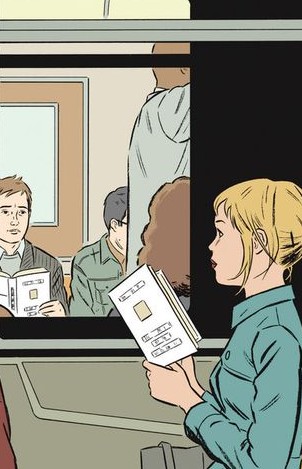Literacy Blogs
- All
- 3-cueing
- academic learning time
- academic vocabulary
- accommodations
- accountability testing
- Active View of Reading
- adolescent literacy
- afterschool programs
- alphabet
- amount of instruction
- amount of reading
- argument
- assessment
- auding
- author awareness
- automaticity
- balanced literacy
- beginning reading
- Book Buddies
- Book Flood
- challenging text
- classroom organization
- close reading
- coaching
- cohesion
- Common Core State Standards
- complex text
- comprehension strategies
- content area reading
- context analysis
- curriculum materials
- Daily 5
- decoding
- departmentalization
- DIBELS
- dictionary skills
- digital texts
- disciplinary literacy
- dyslexia
- early interventions
- effective teachers
- Emily Hanford
- executive function
- family literacy
- fingerpoint reading
- foundational skills
- graphic novels
- guided reading
- heterogeneous grouping of students
- homework
- improving reading achievement
- independent reading
- independent reading level
- informal reading inventories
- informational texts
- instructional level
- invented spelling
- jigsaw instruction
- knowledge
- leadership
- learning disabilities
- Lexiles
- linguistic comprehension
- listening comprehension
- literacy charities
- literacy policy
- literary interpretation
- main idea
- morphology
- motivation
- narrative text
- National Early Literacy Panel
- nonsense words
- oral language
- oral reading fluency
- paraphrasing
- Pause, Prompt, Praise (3P)
- personalized learning
- phonemes
- phonemic awareness
- phonics
- press and media
- principals
- prosody
- Readers' Workshop
- reading comprehension
- reading disabilities
- reading intervention
- reading levels
- reading models
- Reading Recovery
- reading research
- reading skills
- reading strategies
- reading to children
- reading wars
- reading-writing relations
- remedial reading
- rereading
- Response to Intervention
- Scarborough's Rope
- science of reading
- seatwork
- semantics
- sentence comprehension
- sequence of instruction
- set for consistency
- set for variability
- shared reading
- shared reading
- sight vocabulary
- simple view of reading
- Simple View of Reading
- small group instruction
- social studies
- sound walls
- Special Education
- speech-to-print phonics
- spelling
- stamina
- summarizing
- Sustained Silent Reading
- syllabication
- syntax
- syntax
- testing
- text complexity
- text interpretation
- text reading fluency
- text structure
- theme
- think-pair-share
- trauma
- visualization
- vocabulary
- word walls
- writing
- zone of proximal development (ZPD)
Five Things Every Teacher Should Know about Vocabulary Instruction
Blast from the Past: This entry was first published September 28, 2019 and was re-issued on October 17, 2020. As a young man, I set out to improve my vocabulary since I knew it would improve my chances of getting into graduate school. Over a period of about a year, I learned about 400 new words (all recorded on index cards for practice). This was not a research study, I really needed to master these words. My personal impression: I couldn't believe how much my reading and listening comprehension improved during that period; things that I "kind of" understood previously ...
What Do You Think of the Reading Workshop? or How Not to Teach Reading Comprehension
Blast from the Past: First released on September 21, 2019; re-issued January 22, 2022. This blog entry was met by a great deal of controversy with some teachers agreeing with me and others arguing that you can deeply engage a text even if you haven't read it. Of course, since this was released we have been immersed in a COVID crisis that has greatly reduced the amount of reading instruction that children are receiving. The reading conference method might seem more useful to some in this unfortunate climate. We definitely want to encourage kids to replace some of that lost schooling ...
Why Not Teach Reading Comprehension for a Change?
Teacher question: I saw you speak recently and in your definition of reading comprehension you used the term “affordance.” How would you define affordance as you use it concerning text? Shanahan responds: Usually, I’d just shoot off a quick email explanation with a question like this. However, in this case, the question affords me the opportunity to explain why so much “reading comprehension instruction” is wrongheaded and why it fails to accomplish its goals of improving reading achievement. I believe that standardized reading comprehension testing has warped and distorted our conception of reading comprehension. Instead of focusing on how to enable kids to make sense of the ideas expressed in text, we’ve tended to ...
Should We Grade Students on the Individual Reading Standards?
Teacher question: What are your thoughts on standards-based grading in ELA which is used in many districts? For example, teachers may be required to assign a number 1-4 (4 being mastery) that indicates a student’s proficiency level on each ELA standard. Teachers need to provide evidence to document how they determined the level of mastery. Oftentimes tests are created with items that address particular standards. If students get those items correct, that is evidence of mastery. What do you recommend? Shanahan response: Oh boy… this answer is going make me popular with your district administration! The honest answer is that this kind of standards-based grading makes no sense at all. It is simply ...
The Great American Phonics Instruction Test, Part II
Last week, I posed 5 questions as the first half of the Great American Phonics Quiz. I hope you did well on those items that focused on whether students could learn to read without phonics, what kind of contribution it makes to learning, whether phonics instruction needs to be systematic, and whether analytic or synthetic phonics was best. Here is the second half of the Great American Phonics Quiz. Good luck. 6. Lack of adequate phonics instruction is likely the reason why so many American students are failing to become proficient readers. True or false? Recently, I received an angry note from a gentleman concerning the dearth of phonics ...
The Great American Phonics Instruction Test, Part I
Schools are so tied up with testing these days, and this being the season of “monitoring assessments,” maybe a back-to-school phonics quiz would be a good way to welcome you all back. I was having so much fun writing these test questions that I considered either putting in for a job at ETS or including a Part II next week... I decided on the latter. Admittedly, the length was a concern. Breaking it up into two parts seemed most politic: that way the Fair Testing people and Diane Ravitch may not come after me. Let’s see how you do. The answers are all research-based! 1. ...
Should We Assess Expression When Evaluating Fluency?
Teacher question: When measuring oral reading fluency by, say, having kids read a grade-level text for one minute, I take note of speed and accuracy. 1. Should I also measure expression? I certainly know expression is part of fluent reading, but isn’t a kid trying to read fast and accurate not really able to read with perfect expression? For example, they might take nice pauses and commas and question marks but slow down their words per minute score. 2. Should I also measure retell? Keep in mind my concerns in my first question. Plus, fluency and comprehension seem like they would be difficult to measure simultaneously on just a one-minute ...
Is Round Robin Reading Really that Bad?
Blast from the Past: This entry first posted on July 29, 2019; repost on October 23, 2021. This one got lots of hits, downloads, and reprints the first time around. I think this was for two reasons: First, round robin continues to be widely used in reading programs and for much of the reading done in social studies and science. Second, this posting included not just reasons not to use round robin, but it offered some practical guidance to do better. It is always works best to tell people what they can do, rather than focusing on what they can’t ...
How to Teach Summarizing, Part II
Last week, in response to a teacher’s question, I explained the important role summarization plays in reading comprehension. I described how, according to research, we can best teach kids to summarize paragraphs from informational texts. Voilà, I just walked the talk: I just provided a summary of last week’s blog entry. This week let’s focus on summarization with longer informational texts and stories. Being able to summarize paragraphs is a useful skill in itself (e.g., identifying the author’s point, paraphrasing, jettisoning the trivial and repetitive) and being able to summarize short portions of text contributes to longer summaries, too. But there is at least one important difference with longer summaries. That ...
How to Teach Summarizing, Part I
Blast from the Past: This entry posted July 13, 2019 and re-posted on September 23, 2023. These days there is so much arguing about whether to teach comprehension strategies or not, that how to teach them seems to be getting lost. Indeed, there is a lot of research saying that teaching strategies is valuable, and that having students summarize what they read has a big payoff. This kind of strategy gives students something to do with their minds -- it gets them to pay attention to the content of the text, rather than just reading it. This blog seems to ...









